Korean parliamentarians visit SF Bay Area
Four members of Korea’s National Assembly met with leaders of Northern California’s Korean community to discuss Korean government policy on overseas Korean citizens on Monday, August 2.
Grand National Party members Kim Choong-whan, Kim Hyo-jae, and Kim Young-woo and Democratic Party member Song Min-soon were in the San Francisco Bay Area in their capacity as members of the National Assembly’s Committee on Foreign Affairs, Trade, and Unification Affairs, the standing committee that oversees the foreign affairs ministry and the government ministry that deals with North Korea.
During their meeting with fourteen local Korean leaders at Sura Restaurant on Telegraph Avenue in Oakland, the parliamentarians heard concerns and suggestions regarding issues like dual citizenship, overseas voting procedures, and the US-Korea free trade agreement (FTA), which has been negotiated between the two countries but among other hurdles awaits ratification by the US Congress.
Like countries such as Norway, the Republic of (South) Korea has never allowed dual citizenship, although the government has no way of knowing whether a Korean citizen has acquired citizenship elsewhere. Overseas Koreans have long demanded that the government formally allow dual citizenship, but fear that it could make it easier to evade taxes and military conscription has meant that pushing proposals forward has required considerable political courage. Now that overseas citizens have won voting rights in Korean elections, however, parliamentarians will have increased motivation to take action on the matter.
Current proposals include recognizing dual citizenship for gradually expanding groups of people, for example by first allowing it for senior citizens, then foreigners who marry Korean citizens, until the general public grows comfortable with what by many is still seen as the potential to create divided loyalties. Among suggestions the visiting parliamentarians heard was that overseas Koreans be given a greater voice in shaping that policy.
Of immediate concern for Korean citizens abroad has been the next round of elections. The Constitutional Court declared election laws prohibiting overseas voting unconstitutional in 2007, but cited concerns about the logistics of having overseas Koreans participate in the a presidential election later that year in allowing lawmakers to delay implementation. 2010 will see practice votes in countries around the world to test how the system for overseas voting will work in a real election.
In the meantime, Korean communities outside of the country are deeply worried about internal division – it’s hard enough staying united and together without members of the community taking sides and joining competing campaign organizations in their host countries. The concern might seem ironic, since it was overseas Koreans who petitioned the Constitutional Court to allow them to vote in the first place.
“Everyone looks at voting abroad with both expectation and concern,” said Kim Hyo-jae, who represents the Seongbuk area of Seoul. “Sure we’re concerned about division and infighting in overseas Korean communities, no less than all of you are. Voting always means taking sides. As long as you see that as healthy competition and not conflict, it’s a good thing. It’s not as if you can just quit democracy” for fear of discord, he said.
In answer to questions about what the Korean National Assembly is doing about implementing the US-Korea Free Trade Agreement (FTA), Song Min-soon, who happened to be involved in the initial FTA negotiations when he was foreign minister under the government of President Roh Moo-hyun, suggested that Koreans don’t look only to Korea when pushing for the agreement.
“Legislators everywhere fear their constituents more than anything else,” said the first-time legislator. “Writing the member of Congress who represents the districts where you live would be more effective,” he said, noting that ratification of the agreement is anything but assured.
Community leaders present for the get-together included the presidents of the Korean-American federations (Haninhoe) of The San Francisco Bay Area, Silicon Valley, and Monterey, as well as the National Unification Advisory Council, a constitutionally stipulated body of overseas leaders, the San Francisco Korean Chamber of Commerce, the Northern California Korean Drycleaners Association, prominent members of the Korean language news media, and others.
SEO Banseok
Photo: National Assembly members Song Min-soon, Kim Choong-whan, Kim Hyo-jae, Kim Young-woo speaking to members of the Korean community at Sura Restaurant on Telegraph Avenue in Oakland on Monday.
[The Korea Times San Francisco, Inc./Hankook Ilbo is the oldest and largest circulation Korean daily news publication in Northern California, with sister editions in Korea, Europe, and major American cities. All rights reserved.]
스마터리빙
more [ 건강]
[ 건강]이제 혈관 건강도 챙기자!
[현대해운]우리 눈에 보이지 않기 때문에 혈관 건강을 챙기는 것은 결코 쉽지 않은데요. 여러분은 혈관 건강을 유지하기 위해 어떤 노력을 하시나요?
 [ 건강]
[ 건강]내 몸이 건강해지는 과일궁합
 [ 라이프]
[ 라이프]벌레야 물럿거라! 천연 해충제 만들기
 [ 건강]
[ 건강]혈압 낮추는데 좋은 식품
[현대해운]혈관 건강은 주로 노화가 진행되면서 지켜야 할 문제라고 인식되어 왔습니다. 최근 생활 패턴과 식생활의 변화로 혈관의 노화 진행이 빨라지고
로컬뉴스
more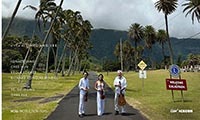
“한인 이민역사 기념하는 의미있는 영화”
121년 전 하와이로 떠나온 한인들의 이야기를 아름다운 음악과 함께 담아낸 영화 ‘하와이 연가’가 한국과 미국에서 큰 반향을 일으킨 가운데, …
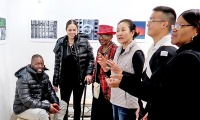
본스타 락스 갤러리, 현대사진가 특별 그룹전 열려
현대사진가 특별 그룹전이 지난달 24~31일까지 맨하탄 본스타 락스 갤러리(관장 홍하나)에서 열렸다. 형태의 탐구를 주제로 48인이 참여한 이…
뉴욕한국문화원·한국예술종합학교, ‘크리에이티브 인…
뉴욕한국문화원(원장 김천수)은 한국예술종합학교(총장 김대진, 이하 한예종)과 공동주최로 한예종 재·졸업생 대상 우수 아티스트 및 작품을 발굴해…
미동부한인스키협, 2차 스키강습
미동부한인스키협회(KASA)는 지난 5일 펜실베니아주 빅 볼더 리조트에서 2024~25시즌 2차 스키강습회를 열었다. 이날 수업은 30명이 참…
뉴저지 민권센터, 이민자‘메가폰 상’수상
뉴저지 민권센터가 최근 뉴저지이민자정의연맹(NJAIJ)이 주는‘메가폰 상’을 수상했다. 메가폰 상은 이민사회를 위한 미디어 홍보와 커뮤니티 교…
한국일보 안내광고

- 렌트/리스/하숙
- 구인구직
- 중고차
- 전문업체
- 2층 화장실 딸린 큰방 주방
- 엘리컷씨티 롯데 15분 거리
- 페어팩스 서클타워 사거리 방1
- 스프링필드 환한 반지하 방1
- 2층 방1, 스프링필드 VA
- 금연,금주,여자 Fort Belvoir.
- MD 방1 조용한집
- 버톤스빌 교통편리 타운홈
- 오덴톤MD 방1렌트 유포$600

많이 본 기사
- “떡복이 등 한국음식 준비해요”
- “한미시니어 센터 프로그램 풍성해요”
- [알림] 사업체 상호 등록 대행ㆍ공고 서비스
- 崔대행, 박종준 경호처장 사직서 수리
- 현대차그룹, 미래차 R&D에만 11.5조 쏟아붓는다
- [CES 2025] AI 태운 자동차… 유리창에 내비·운전자 기분도 맞춰
- 연방당국, 테슬라 ‘스마트 호출’ 사고 조사 착수
- LA 산불 사흘째…주택가 계속 삼켜 최소 10명 사망·18만명 대피
- 산불 피해 1천억달러… 화재보험 보상 ‘막막’
- [경제단체장 신년 인터뷰] “협회·회원·한인사회 동반성장 모색”
- 신규주택 판매 전월비 12% 증가… 7개월래 최고
- ‘CES 2025’ 에서 선보인 날으는 오토바이
- 미, AI칩 수출통제 전 세계로 확대
- [MIH] “인천 송도, 80세대 한정 재미동포타운 특별 분양”
- 벌써 500억 달러 훌쩍…LA 산불,… 4
- 인플레·트럼프 불확실성 연준 “금리 조절 필요”
- [CES 2025] ‘아이언맨 수트’ 처럼…안마 로봇 입는다
- 설 무료 송금 서비스 우리아메리카 은행
- 해외건설 누적 수주 1조 달러 넘었다…반도체·자동차 이어 세번째
- 중국 공급과잉에 첨단칩 고전… “올해 반등 할 것”
- 연기된 축구협회장 선거 23일 치르기로…허정무 후보자격 그대로
- 슬림모델 더하고 AI 고도화… 갤S25 출격, 수익성 개선 정조준
- ‘손흥민 72분’ 토트넘 리그컵 준결승 승리
- “관세 실현 시, 가구 연생활비 7,600달러까지 상승”
- [일란 슈즈 살롱] 50년 전통 SAS 신발로 완성되는 건강한 걸음
- 에어프레미아, 미주연계운항 잠정 중단
- [커뮤니티 게시판] 한인회 미주 한인의날 기념식 및 신년 하례식
- 마법 같은 경험, 해리의 이야기가 계속된다
- 호주오픈 테니스 개막…조코비치, 메이저 25승 달성할까
- [전익환 프로의 골프교실] 장타를 원하면
- “현대제철, 미 제철소 건설 검토”
- 산불 급증에 보험사들 이미 대거 발뺐… 3
- “섬유질 풍부한 식품, 유전자 발현 변화시켜 항암 작용”
- 韓 경찰 나온 경호처장 “대통령 걸맞은 수사 돼야…현 방식 안돼”
- 부통령 당선인 밴스, 연방 상원의원직 사퇴
- [현대아미원] “세련된 변화를 위한 맞춤형 영구화장”
- 트럼프 대규모 불체자 단속 준비...취임 맞춰 건설ㆍ요식업ㆍ농업 현장 급습해 체포ㆍ추방할 듯
- 소방예산 1천780만 달러 삭감이 피… 7
- “시진핑, 트럼프취임식 불참…차이치·한정 고위특사 파견 거론”
- 바이든, LA 산불 대책회의… “연방정부, 180일간 비용 100% 부담”
- [트럼프취임 D-10] ‘징검다리 집권’ 트럼프 2기 20일 개막… ‘MAGA 대장정’ 선언
- “모두가 누릴 수 있는 미술관 지향”
- 아름다움과 슬픔, 바체바 무용단 ‘모모’
- 하원, 네타냐후에 체포영장 발부한 ICC 제재법안 가결
- 한국계 영 김, 하원 외교위 동아태소… 2
- 한국계 美의원들 “이젠 재미 한인의 경험이 곧 미국인의 경험”
- 트럼프 폭풍 샤핑
- 바이든 “하마스와 휴전·인질 협상에 실질적 진전”
- 바이든 아들·패리스 힐튼 저택도 탔다… 1
- 미국 국채금리 상승에…모기지 금리도 6개월 만에 최고
1/5지식톡

-
 모임
0
모임
0서울 수송 초등학교 동창회 2024년12월 마지막 토요일 송년회 모임 714-975-4979
-
 사업체 거래의 중요성.
1
사업체 거래의 중요성.
1사업체 거래는 그동안 정성과 수고로 이루어낸 사업체를 매각하는또한 바이어의 입장에서는 생업이 되어야하는 중요한 거래입니다.많은 경험과 전문 지식 그리고 신뢰감을 느낄수 있는 전문 부동산 에이젠트와 함께 하시는게 많…
-
 동아리
0
동아리
0쥐띠 모임 동아리607284용띠 모임 동아리 647688원숭이띠 모임 동아리 688092CELL & TEXT 714-975-4979
-
 밴드
0
밴드
0혹시나 해서 글 올려봅니다 ROCK 밴드 에서 MEMBER 찾고있습니다 POSITION :키보드 1st GUITARIST 여성 보컬 색소폰 트럼펫 트롬본 피아노 연주자 음향장비 전문가..기타등등..찾고있습니다 로스…
-
 19년차 젊고 경험 많은 부동산 브…
1
19년차 젊고 경험 많은 부동산 브…
1안녕하세요,19년차 캘리포니아 부동산 브로커 다니엘 장 입니다.▶"HIGH IQ (156 )" 그룹 "US MENSA/멘사"◀ 평생회원 인 다니엘 장이 현재 President / Broker 로운영 중인 미 주류 …
케이타운 1번가
오피니언
 문태기 OC지국장
문태기 OC지국장 새해 GG 한인타운 발전 기대

‘폭음 대통령’
 칼스테이트 롱비치 교수 마케팅학
칼스테이트 롱비치 교수 마케팅학 [송명국 교수의 ‘삶과 경영 이야기’] ‘기본 설정’ 의 숨겨진 힘
 박연실 수필가
박연실 수필가 [윌셔에서] 처음처럼
 이혜진 / 서울경제 논설위원
이혜진 / 서울경제 논설위원 우골탑과 등록금
 정숙희 논설위원
정숙희 논설위원타마라 드 렘피카 @ 드영 뮤지엄
 권조앤 오렌지 글사랑회 회장
권조앤 오렌지 글사랑회 회장 [수요 에세이] 묵사발의 맛
 리 혹스테이더 워싱턴포스트 칼럼니스트
리 혹스테이더 워싱턴포스트 칼럼니스트 [리 혹스테이더 칼럼] 벼랑 끝에 선 유럽
 수잔 최 한미가정상담소 이사장 가정법 전문 변호사
수잔 최 한미가정상담소 이사장 가정법 전문 변호사 [오늘과 내일] 새해를 맞이하는 마음가짐
1/3지사별 뉴스

뉴욕주 보육시설 대폭 늘린다
뉴욕주가 보육 시설 및 서비스 확충을 추진한다. 캐시 호쿨 뉴욕주지사는 7일 “보편적인 보육 시스템 구축을 위해 1억1,000만달러 규모의 ‘…
트럼프, 지방세 공제한도 늘릴까

물·전기 부족사태 우려 커져
최근 수년간 북버지니아 지역을 중심으로 한 세계 최대 데이터 센터 단지가 급속 확장세를 이어지고 있는 가운데 이들 데이터 센터에 대한 물과 전…
MD그로서리 주류판매 허용, 찬반 엇갈려

‘통제불능’ LA 산불 7개로 늘어…최소 5명 사망, 15만명 대피령
서부 최대 도시 로스앤젤레스(LA) 해안가에서 시작된 산불이 걷잡을 수 없이 확산하고 있다.첫 산불이 돌풍을 타고 번지는 가운데 추가로 크고작…
제122주년 미주한인의 날 기념식












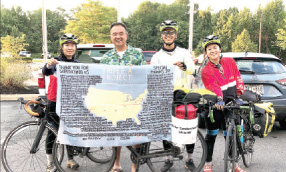
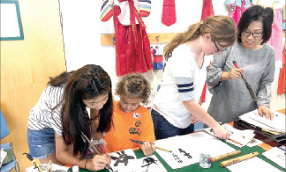
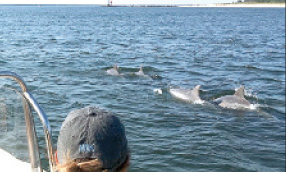
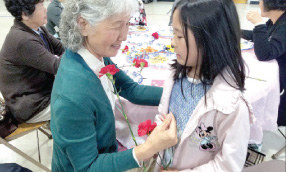
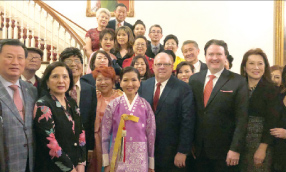
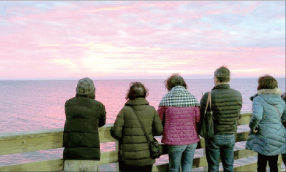
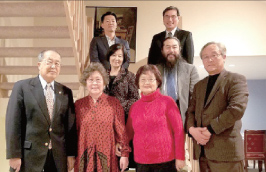
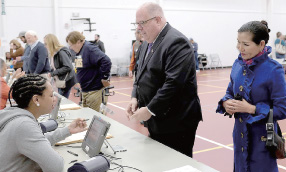








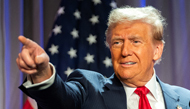


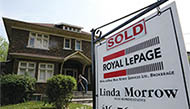


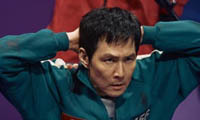
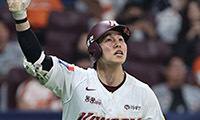
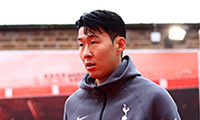














.png)


댓글 안에 당신의 성숙함도 담아 주세요.
'오늘의 한마디'는 기사에 대하여 자신의 생각을 말하고 남의 생각을 들으며 서로 다양한 의견을 나누는 공간입니다. 그러나 간혹 불건전한 내용을 올리시는 분들이 계셔서 건전한 인터넷문화 정착을 위해 아래와 같은 운영원칙을 적용합니다.
자체 모니터링을 통해 아래에 해당하는 내용이 포함된 댓글이 발견되면 예고없이 삭제 조치를 하겠습니다.
불건전한 댓글을 올리거나, 이름에 비속어 및 상대방의 불쾌감을 주는 단어를 사용, 유명인 또는 특정 일반인을 사칭하는 경우 이용에 대한 차단 제재를 받을 수 있습니다. 차단될 경우, 일주일간 댓글을 달수 없게 됩니다.
명예훼손, 개인정보 유출, 욕설 등 법률에 위반되는 댓글은 관계 법령에 의거 민형사상 처벌을 받을 수 있으니 이용에 주의를 부탁드립니다.
Close
x